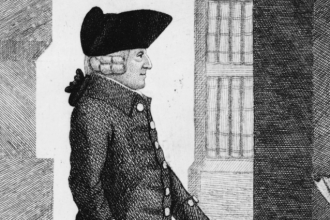Daniel B. Klein
Suppose a man named Hutcheson lends ten pounds to a man named Smith. Then we might say, “Smith owes Hutcheson ten pounds.” Suppose that Hutcheson also teaches and aids Smith. Then we might say, “Smith owes Hutcheson gratitude/esteem/love.” Beyond Hutcheson, Smith might feel that he has been taught and aided by humankind generally, and Smith might say, “I owe humankind love.” These are all is sentences.
Adam Smith himself says:
If I owe a man ten pounds, justice requires that I should precisely pay him ten pounds, either at the time agreed upon, or when he demands it. What I ought to perform, how much I ought to perform, when and where I ought to perform it, the whole nature and circumstances of the action prescribed, are all of them precisely fixt and determined. (TMS, 175, italics added)
Here Smith goes naturally from “owe” to “ought.” That ought derives etymologically from owe is confirmed by both the Oxford English Dictionary and the Online Etymological Dictionary. The latter, in the ought entry, says that ought came from the Old English word agan, meaning “to own, possess, owe.” Specifically, ought comes from its past tense, which is ahte. In fact, in the owe entry, it indicates that until the 15th century the past tense of owe was oughte, which then was replaced by owed, while oughte developed into ought. Further, in the ought entry, it says that ought “has been detached from owe since 17c., though he aught me ten pounds is recorded as active in East Anglian dialect from c.1825.”
I imagine the following dialog between an Interviewer and Adam Smith:
Interviewer: You say you ought to pay Hutcheson ten pounds. What do you mean by that?
Smith: I owe him ten pounds, and so I have a duty to him.
Interviewer: Yes. » Read More
https://theimaginativeconservative.org/2025/04/adam-smith-queried-ought-daniel-b-klein.html






